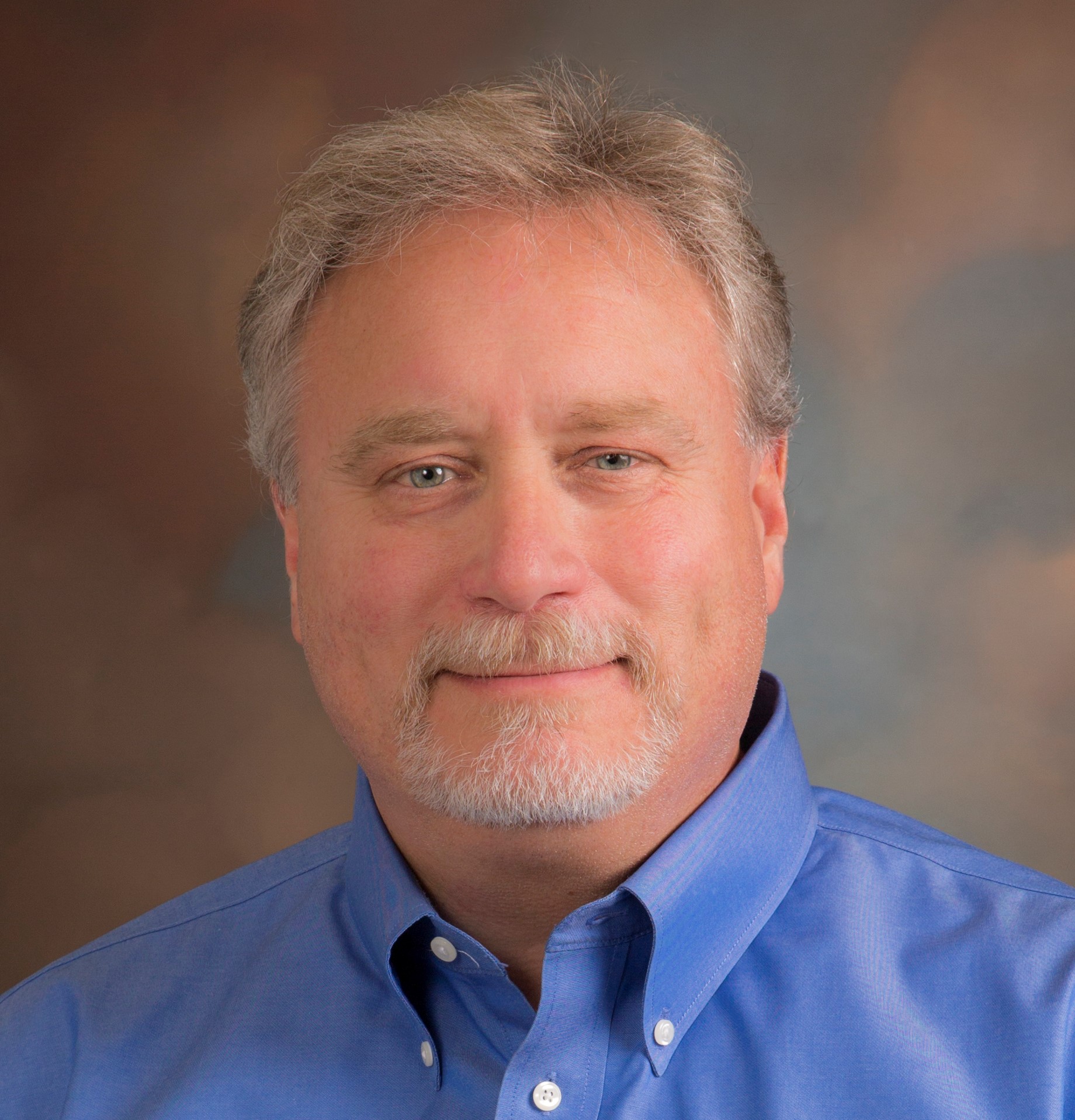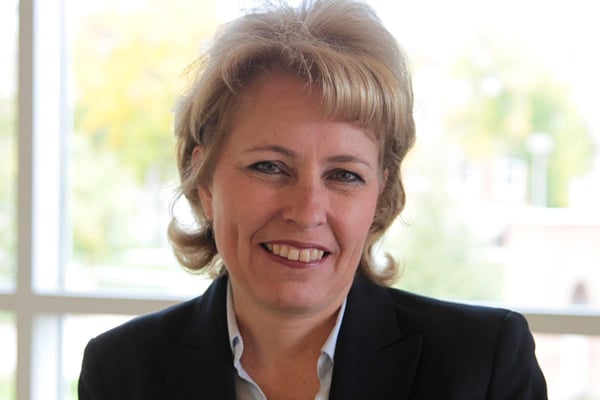Scott Lehr, vice president and general manager of Launch & Missile Defense Systems for Northrop Grumman, talks taking risks and going your own way
When Scott Lehr (CE 84) was 5 years old, he sent a letter to the National Aeronautics and Space Administration (NASA) asking if watches worked in space. Not only did NASA answer his question, but they continued to send him mail for several years.
“They sent me materials for years on the human space mission, so I have a big folder with all these NASA fact sheets and pictures of astronauts.”
That was the beginning of Lehr’s lifelong interest, both personal and professional, with science – space, in particular. He grew up in Aberdeen, SD, during the Apollo days and remembers watching the moon landing in 1969.
It’s no surprise Lehr wanted to attend South Dakota Mines. The school had a great reputation locally and regionally and also had good relationships with many companies in the industry. As a student, he valued the small class sizes and dedicated professors who came with lots of industry experience. He remembers they would gladly spend time helping students get through tough courses.
Even though he studied civil engineering, he never lost his interest in aerospace engineering. The Cold War was still in full swing as he neared graduation, and the Berlin Wall hadn’t yet fallen. The defense industry was booming. His advisor, Bill Coyle, who Lehr remembers fondly, wanted him to remain a civil engineer. But Lehr couldn’t kick his initial love of space. He decided his civil engineering studies from Mines taught him enough of the fundamentals that he could veer in another direction if he wanted.
Nearly 39 years later, he’s glad he took the risk. And according to Lehr, he didn’t have much of a choice after his first time witnessing a rocket launch.
“If you’ve ever seen a rocket launch and feel that pressure pound against your chest, you’re hooked. You’re not going back. That’s what happened to me.”
Lehr started out in quality engineering at Hercules Aerospace Co., a company the primarily built solid rocket motors for the government. He eventually moved into materials testing where he was pulled into a program the company was working on for NASA. Lehr acted as a program manager on the project, which was the beginning of his progression through the ranks. In 1995, Hercules Aerospace was purchased by ATK (a Honeywell spinoff), which eventually merged with Orbital Science and became Orbital ATK. Lehr became Vice President of Flight Systems for Orbital ATK in 2015. Northrop Grumman bought Oribtal ATK in 2018.
Lehr is now vice president and general manager of Launch and Missile Defense Systems, a division that does $3.6 billion in sales annually. Based in Chandler, AZ, the area includes nearly 7,500 people in offices across the United States. Lehr’s area is responsible for projects that launch cargo to the space station and develop software and systems that detect missile launches. They were recently awarded a contract by the Missile Defense Agency for the rapid development and flight rest of an interceptor designed to defend the nation against complex long-range threats.
Last year, the division opened a building in Colorado Springs, CO, that is home to advanced engineering, research labs, software development factories, and a high-speed, multi-secured communications network.
“We make the software and systems that detect the launch and then allow a war fighter that sits at Vandenberg Air Force Base to press the buttons that would launch interceptors in Fort Greeley, AK, and intercept those missiles if one of our adversaries tried to attack us.”
The gravity (no pun intended) of Lehr’s work is something he thinks about often. “When you make a solid rocket motor, safety is really critical. It’s a very precise business. Little things matter. We’re very focused on our customers, NASA and the military. They reinforce the importance of our mission, and they place their trust in us. We don’t want to let them down.”
While the stakes are high, the work is also very satisfying. It’s incredibly rewarding, and that’s why I’m working on 39 years. From me on down, we take a lot of pride in what we do. We have a lot of patriotic folks who work in this area.”
Lehr’s area also works with nearly 100 interns. He enjoys mentoring the young professionals, and the one piece of advice he likes to give is: Don’t be afraid to take risks. “Volunteer for the hard stuff. Raise your hand when no one else wants the assignment. In my case it involved a relocation to Edwards Air Force Base in California for 18 months. I was the only one who raised my hand to do it. My team had to build and test a rocket motor in record time and we did really well. I took a huge risk when I took that job, but it paid off because it gave me that exposure.”
However, the ability to take risks should also accompany the readiness to fail, according to Lehr.
“You have to be prepared for the fact that it might not turn out well, but usually you can still learn something from it. Usually there’s a risk reward. Before you know it, you’re going to be in charge of something.”

.jpg?width=600&height=450&name=Michelle%20and%20Danni%202023%20(003).jpg)

